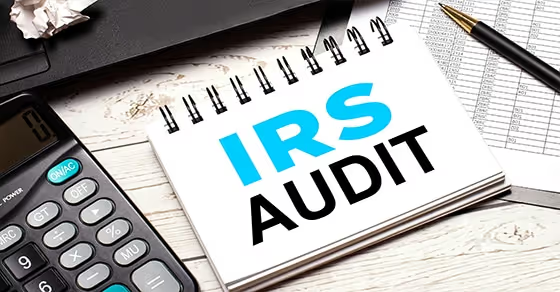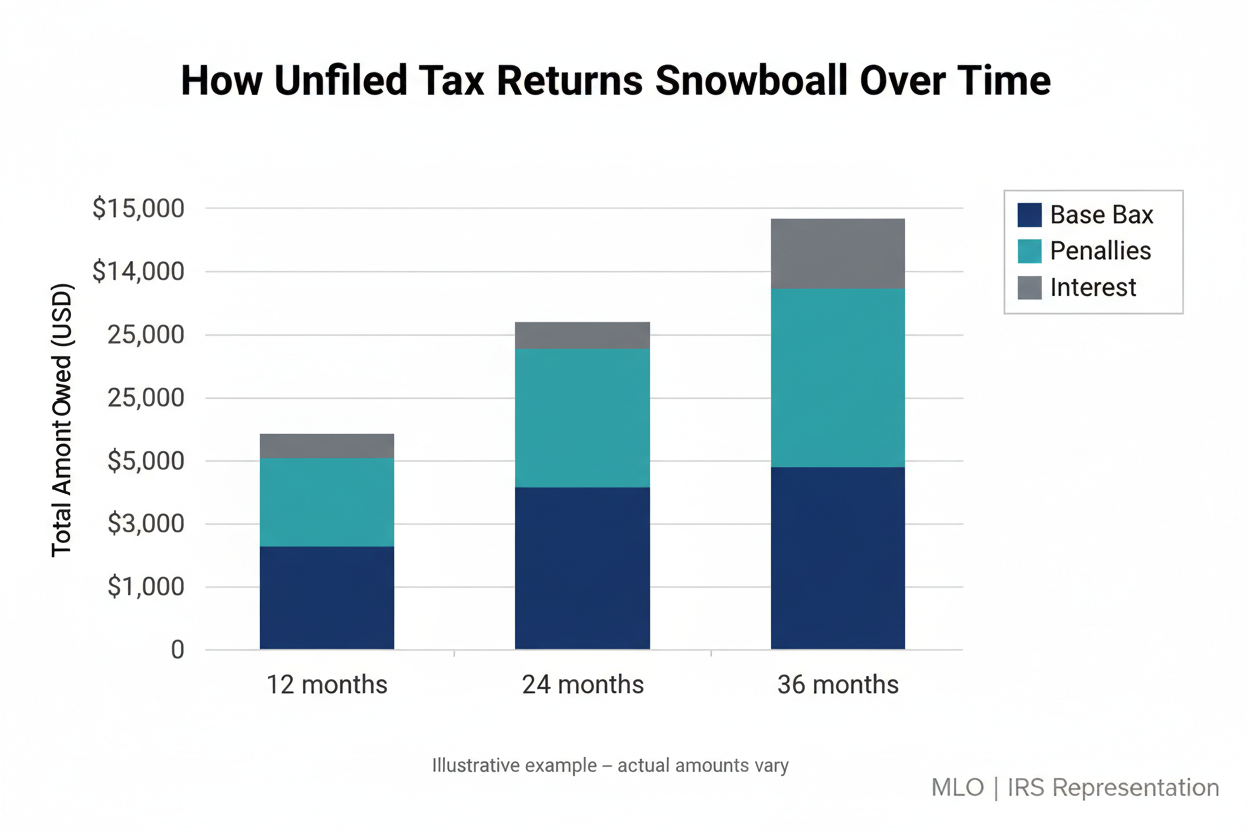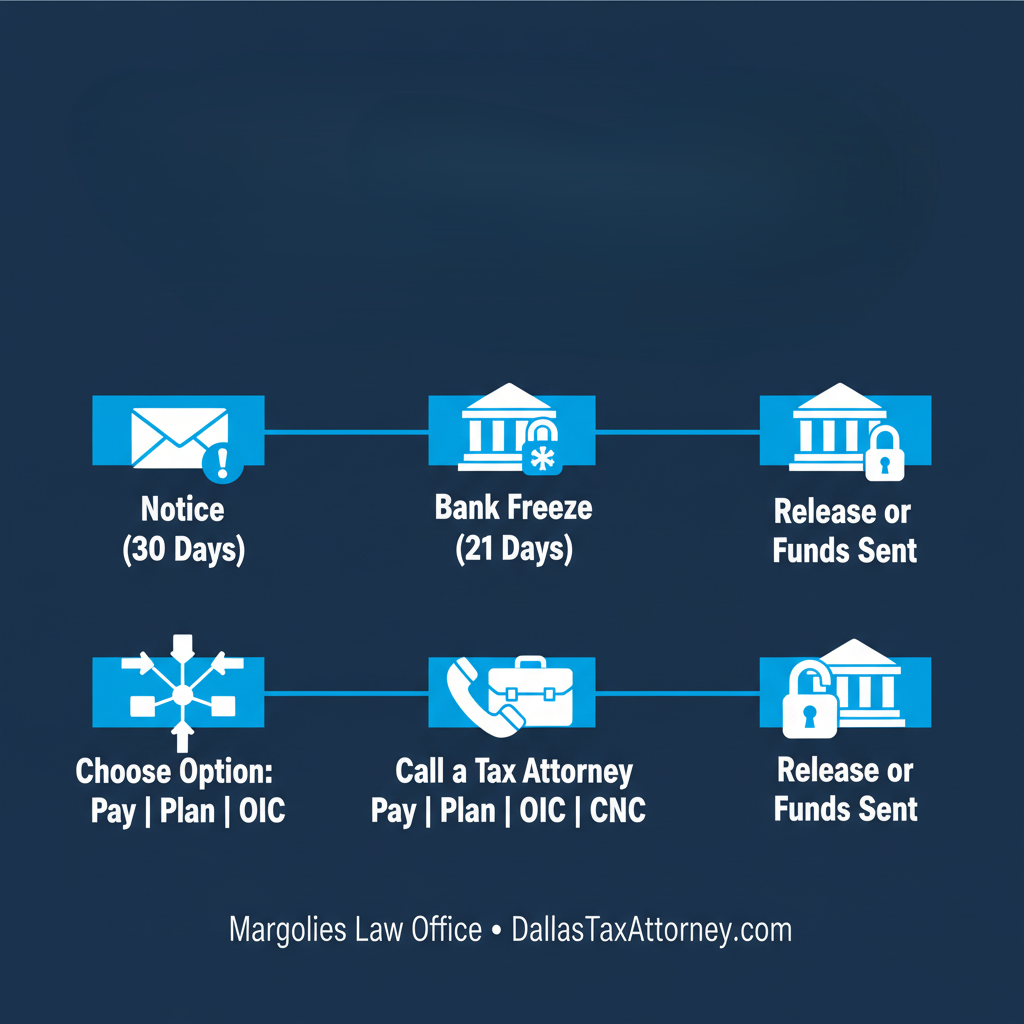Importance of IRS Audit Representation

Facing an IRS audit can be challenging, but IRS tax audit representation offers vital support and expertise. Engaging a skilled tax professional, like a tax attorney or enrolled agent, helps manage the audit process, ensuring compliance with tax laws and protecting taxpayer rights. This article highlights the significance of audit representation and guides you in choosing the right expert to navigate the audit efficiently.
Key Takeaways from IRS Audit Representation
- Understanding IRS Audits: Detailed IRS tax audit ensures accurate tax return reporting and compliance with tax laws.
- Audit Process: Involves selection, documentation requests, and meetings with IRS agents. Includes correspondence, in-person, or field audits.
- Professional Representation: Tax attorneys or enrolled agents improve audit outcomes, reduce stress, and ensure compliance.
- Risks of Self-Representation: Handling audits alone can lead to fines or increased scrutiny due to complex tax laws.
- Benefits of Assistance: Tax professionals offer expertise, develop defense strategies, and represent taxpayers, leading to better results.
- Appeal Process: Disagree with audit findings? A tax professional can guide you through the appeal process.
- Choosing a Representative: Select one with the right credentials and experience for effective audit representation.
- Taxpayer Rights: Includes the right to be informed, appeal, and access professional representation, ensuring a fair audit process.
Understanding IRS Tax Audits and the Importance of Professional Representation

What is an IRS Tax Audit?
An IRS tax audit is a thorough examination conducted by the Internal Revenue Service to ensure that taxpayers comply with federal tax laws and accurately report their income and deductions according to tax law. The primary goal is to verify that tax returns are correct and that all financial records align with tax regulations. IRS audits can uncover discrepancies like underreported income or overstated deductions, which may lead to an income tax audit.
The IRS Tax Audit Process
The IRS audit process involves several stages, beginning with the selection of tax returns for review. The IRS uses various methods to choose returns, including computerized scoring and random sampling. In-person audits may require you to meet with IRS agents at an IRS office to provide documentation and answer questions. The audit can be conducted through correspondence audits, in-person audits, or field audits, each varying in complexity and scrutiny level. Understanding the audit process helps taxpayers prepare better, ensuring compliance and reducing audit stress.
What to Expect During a Tax Audit
During a tax audit, the Internal Revenue Service (IRS) will examine your tax return to verify that your income, expenses, and credits are accurately reported. The audit process can be initiated in several ways, including correspondence audits, in-person audits, and field audits. If you receive a notice of audit, it’s essential to understand what to expect during the process.
The IRS will typically request documentation to support the information on your tax return, such as income statements, expense records, and bank statements. You may also be required to provide additional information or clarification on specific items on your return. It’s crucial to respond promptly to all requests from the IRS and meet all deadlines to avoid additional penalties and interest.
During the audit, the IRS agent may ask questions about your tax return, and you should be prepared to provide explanations and supporting documentation. It’s also important to note that you have the right to representation during the audit process, and having a qualified tax professional, such as a tax attorney or enrolled agent, can help ensure that your rights are protected and your best interests are represented.
Gathering Necessary Documents for the Audit

Gathering the necessary documents for an IRS audit is a crucial step in preparing for the audit process. The IRS will typically request specific documents to support the information reported on your tax return. It is essential to have these documents organized and readily available to ensure a smooth audit process.
Some common documents that may be requested during an IRS audit include:
- Tax returns and supporting schedules
- W-2 and 1099 forms
- Bank statements and canceled checks
- Receipts for deductions and credits
- Business records, such as ledgers and journals
- Depreciation schedules and asset records
Having these documents well-organized can significantly streamline the audit process. It’s also wise to keep digital copies of these documents, in addition to physical copies, to ensure they are easily accessible and can be provided to the IRS upon request. Proper documentation not only helps in verifying the accuracy of your tax return but also demonstrates your commitment to compliance with tax laws.
The Role of Audit Representation in the IRS Audit Process
IRS tax audit representation plays a crucial role in the IRS audit process. A qualified tax professional, such as a tax attorney or enrolled agent, can represent you during the audit and help ensure that your rights are protected. They can assist with the compilation of requested documents, correspondence, and IRS meetings, and help you understand the audit process and answer questions from the IRS.
Having a tax professional represent you during an audit can also help reduce stress and anxiety. They can handle communication with the IRS, gather necessary documentation, and present your case in a clear and concise manner. Additionally, a tax professional can help negotiate with the IRS to ensure that the audit process is handled smoothly and in your best interest.
Audit Representation and the Appeal Process
If you disagree with the results of an IRS audit, you have the right to appeal the decision. The appeal process begins by requesting an appeal conference with an Appeals Officer. The Appeals Officer will review your case and may request additional information or documentation.
Having a qualified tax professional, such as a tax attorney or enrolled agent, can help you navigate the appeal process and ensure that your rights are protected. They can assist with preparing and submitting the appeal, and represent you during the appeal conference.
It’s essential to note that the appeal process can be complex and time-consuming, and having a tax professional on your side can help ensure that your case is presented in the best possible light.
Resolving Audit Issues

Resolving audit issues can be a complex and time-consuming process. If you disagree with the findings of an IRS audit, you have the right to appeal the decision. The appeal process typically begins with a conference with an Appeals Officer, who will review your case and make a determination.
Common issues that may arise during an IRS audit include disagreements over the interpretation of tax laws and regulations, disputes over the accuracy of tax returns and supporting documentation, and issues related to the calculation of tax liabilities and penalties. Addressing these issues promptly and effectively is crucial to avoid additional penalties and interest.
If you are unable to resolve the issue through the appeal process, seeking the assistance of a tax attorney or other tax professional can be invaluable. They can help you navigate the audit process, ensure that your rights are protected, and provide expert guidance on complex tax laws. Their expertise can make a significant difference in the outcome of your audit.
Tax Audit Representation Costs and Options
The cost of tax audit representation can vary widely depending on the complexity of the case and the experience of the tax professional. Some common costs associated with tax audit representation include:
- Hourly fees for tax attorneys and other tax professionals
- Flat fees for specific services, such as audit representation or appeal preparation
- Contingent fees, which are based on the outcome of the audit or appeal
It is essential to discuss costs and options with your tax professional before engaging their services. They can help you understand the costs associated with tax audit representation and ensure that you are prepared for the audit process.
Common options for tax audit representation include hiring a tax attorney or other tax professional to represent you during the audit process, engaging a tax professional to prepare and submit documentation on your behalf, and seeking the assistance of a tax professional to negotiate with the IRS on your behalf.
Ultimately, the cost of tax audit representation will depend on the specific needs of your case and the experience of the tax professional. Carefully considering your options and choosing a tax professional who can provide effective representation and guidance throughout the audit process is essential for achieving the best possible outcome.
Taxpayer Rights During an IRS Audit
Taxpayers have fundamental rights during an IRS audit, including the right to be informed, the opportunity to appeal decisions, and access to professional representation. These rights ensure a fair audit process and respectful treatment. Being aware of and exercising these rights is essential for navigating the audit process effectively and protecting your interests.
In summary, understanding the IRS audit process and the importance of professional representation can transform a potentially stressful experience into a manageable one. With the right knowledge and expert support, taxpayers can confidently navigate the complexities of an IRS audit.
Risks of Going Solo when Managing an IRS Audit
Handling an IRS audit without professional assistance can be daunting and risky. The complexities of tax laws and regulations may lead to negative outcomes, such as fines, increased scrutiny, or even potential criminal charges. Without expert guidance, taxpayers may find the audit process stressful and time-consuming, with the risks of going solo outweighing the perceived benefits. Without IRS tax audit representation, such as a tax attorney or CPA, taxpayers may struggle to navigate the complexities of the audit process.
Benefits of Hiring a Tax Audit Representative
IRS tax audit representation offers numerous advantages. Tax professionals, including CPAs, enrolled agents, and tax attorneys, provide specialized expertise to navigate the complexities of an IRS audit. They develop audit defense strategies, prepare the necessary documentation, and represent taxpayers in meetings with the IRS. Their involvement often leads to better outcomes, reduced stress, and ensures compliance with tax laws. Their expertise extends to handling audits and controversial cases with both IRS and state tax authorities.
Choosing the Right IRS Tax Representative
Selecting the right tax audit representative is crucial for effective IRS tax audit representation. Look for professionals with relevant credentials, such as CPA, EA, or tax attorney qualifications, and a successful track record. The ideal representative should understand your specific situation and communicate effectively with both you and the IRS. Thorough vetting of potential representatives can significantly impact the audit outcome.
Trust Margolies Law Office for Your Tax Audit Representation Needs in Dallas, TX
Navigating the complexities of an IRS tax audit in Dallas, TX, can be overwhelming, but you don't have to face it alone. Margolies Law Office is your trusted local partner for comprehensive tax audit representation. Our experienced team understands Texas tax laws and IRS procedures, providing personalized guidance to effectively address your unique tax concerns.
Whether you're dealing with an individual or business audit, we are committed to protecting your rights and working toward the best possible outcome. Our proven track record in Dallas ensures that you'll receive expert representation every step of the way.
Don't let the stress of a tax audit weigh you down. Contact Margolies Law Office today and let us help you navigate the process with confidence and peace of mind.
Frequently Asked Questions about IRS Audit Representation
What is IRS audit representation?
IRS audit representation involves a tax professional, such as a tax attorney, CPA, or enrolled agent, representing a taxpayer during an IRS audit. These professionals help manage the audit process, ensuring compliance with tax laws and protecting taxpayer rights.
How much does IRS audit representation cost?
The cost of IRS audit representation varies based on the complexity of the case and the experience of the tax professional. Costs may include hourly fees, flat fees for specific services, or contingent fees based on the audit's outcome.
Who can represent me in an IRS audit?
Tax attorneys, certified public accountants (CPAs), and enrolled agents are authorized to represent taxpayers in IRS audits. These professionals have the necessary expertise to navigate the audit process and ensure compliance with tax regulations.
Why is professional representation important in an IRS audit?
Professional representation is crucial in an IRS audit because tax professionals have the expertise to navigate complex tax laws, develop defense strategies, and ensure compliance. They can also reduce stress for taxpayers and improve audit outcomes.

.webp)


